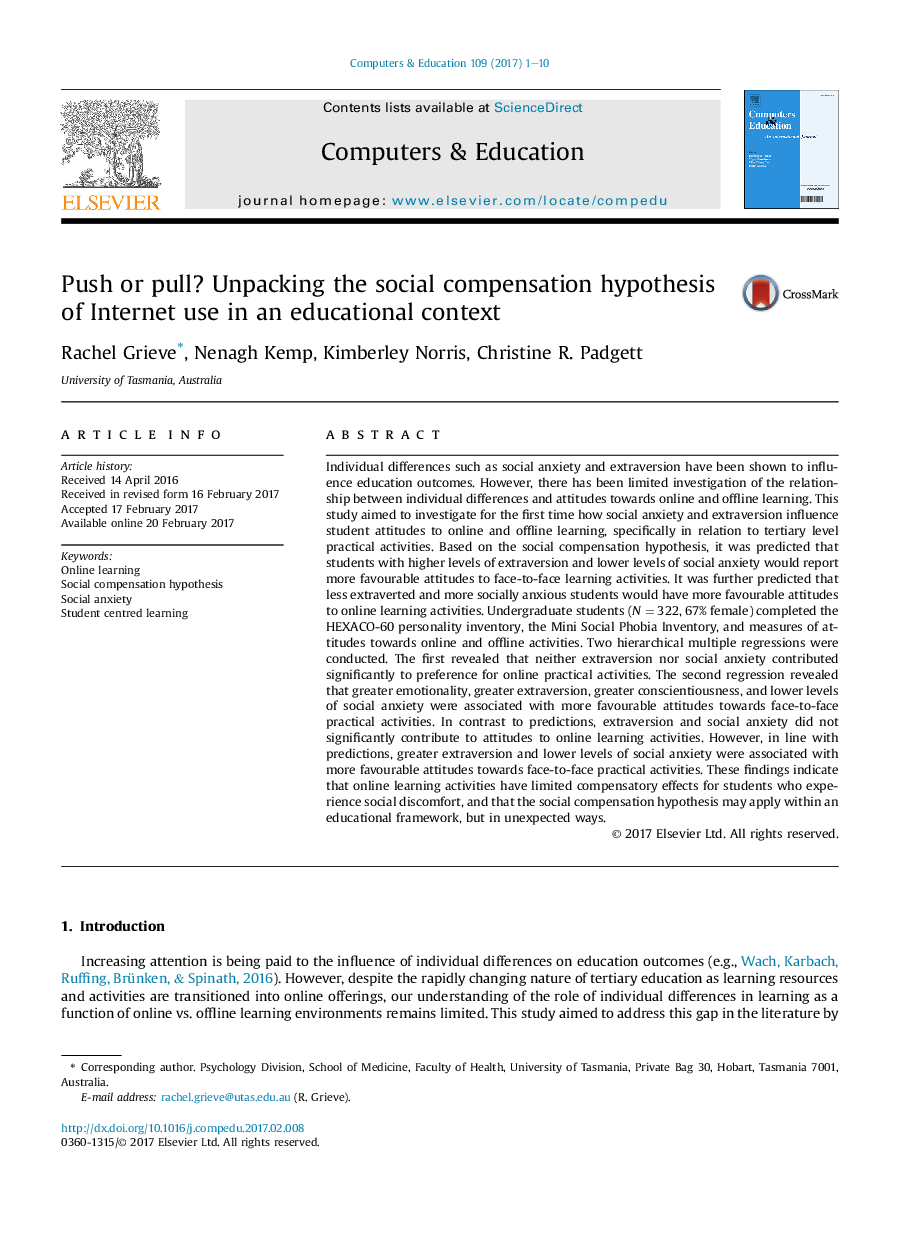ترجمه فارسی عنوان مقاله
فشار دهید یا بکشید؟ بازپس گیری فرضیه جبران استفاده از اینترنت در زمینه آموزشی
عنوان انگلیسی
Push or pull? Unpacking the social compensation hypothesis of Internet use in an educational context
| کد مقاله | سال انتشار | تعداد صفحات مقاله انگلیسی |
|---|---|---|
| 115083 | 2017 | 10 صفحه PDF |
منبع

Publisher : Elsevier - Science Direct (الزویر - ساینس دایرکت)
Journal : Computers & Education, Volume 109, June 2017, Pages 1-10
ترجمه کلمات کلیدی
یادگیری آنلاین، فرضیه جبران جبران، اضطراب اجتماعی، یادگیری محور دانش آموز،
کلمات کلیدی انگلیسی
Online learning; Social compensation hypothesis; Social anxiety; Student centred learning;

